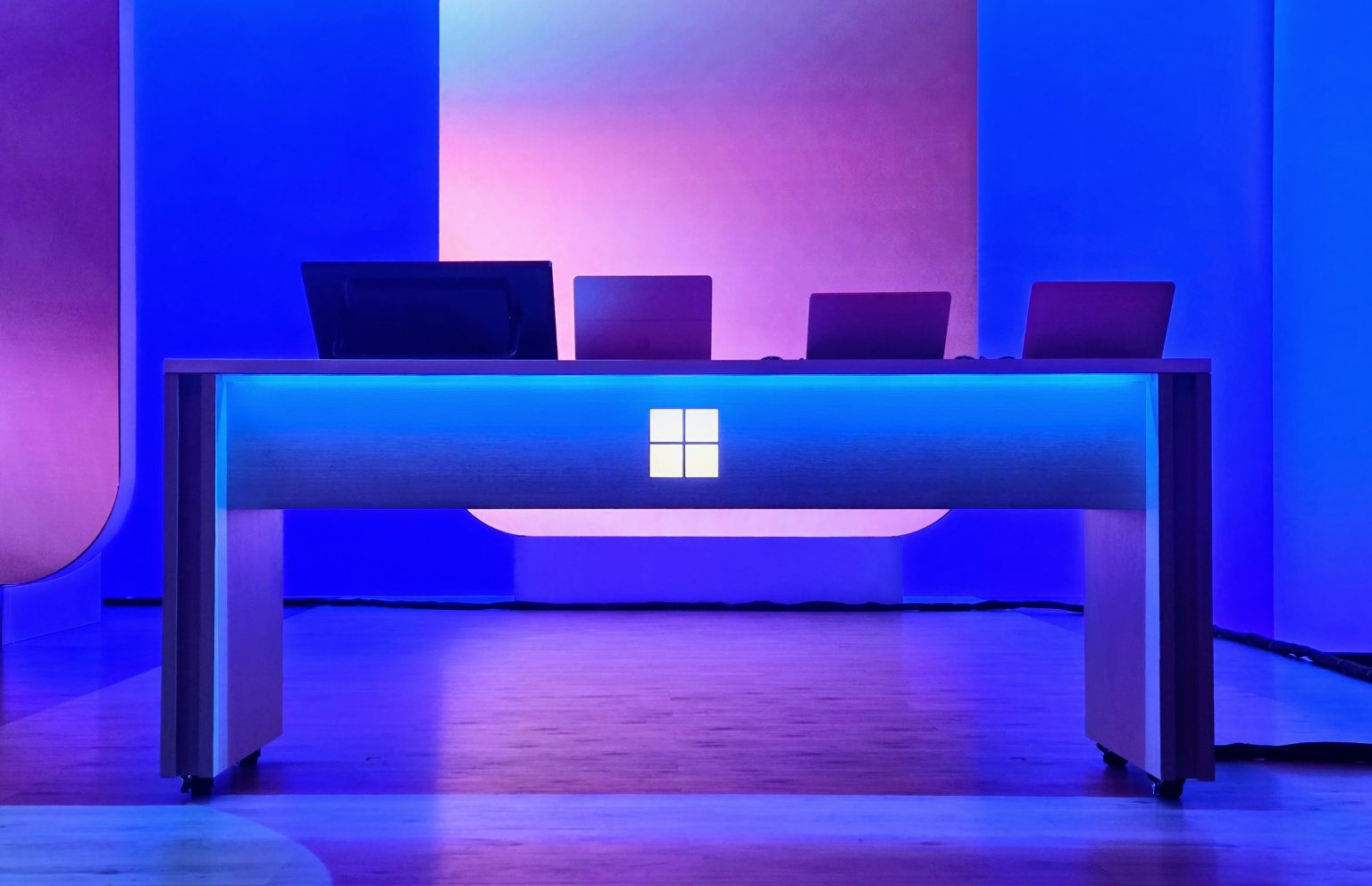Microsoft’s Vision for AI-Powered Windows: Moving Beyond Keyboard and Mouse
In a significant push to redefine how we interact with personal computers, Microsoft unveiled a suite of AI-powered features for Windows 11 on Thursday that could fundamentally change our relationship with technology. The company is betting that voice commands and AI assistance will become as natural to computer users as typing and clicking have been for decades. “Are you talking to your computer?” – a line from Microsoft’s new ad – encapsulates both the novelty and potential awkwardness of this transition as the tech giant tries to make conversational AI an everyday part of the computing experience. These changes represent Microsoft’s vision of evolving Windows beyond traditional input methods to create a more intuitive, responsive computing environment where your PC becomes less of a tool and more of a collaborative partner.
The centerpiece of this AI transformation is “Hey Copilot,” a new wake word that activates Microsoft’s AI assistant through voice commands. This feature allows users to speak naturally to their computers to accomplish tasks or ask questions without touching keyboard or mouse. “In our minds, voice now will become the third input mechanism to use in your PC,” explained Yusuf Mehdi, Microsoft’s consumer chief marketing officer. “It doesn’t replace the keyboard and mouse, necessarily. It’s an additive thing. But this will be pretty profound.” Alongside voice activation, Microsoft is expanding “Copilot Actions” to work beyond just the browser, enabling the AI to perform tasks directly on your computer with your approval. The system can organize files, run operations, and manage workflows semi-autonomously. Microsoft has also redesigned the Windows taskbar to integrate Copilot more seamlessly into the main interface, bringing its AI capabilities front and center in the user experience.
The company has significantly enhanced Copilot’s ability to understand and interact with what’s happening on your screen through the global rollout of Copilot Vision. This feature allows the AI to “see” what you’re looking at and provide contextual guidance, whether you’re struggling with an application or need help within a game. Microsoft has also created new connections between Copilot, File Explorer, and cloud services, enabling the assistant to search across files, emails, and online storage without requiring you to open separate applications. These integrations, along with an improved Windows search feature, aim to make finding and working with information faster and more intuitive across the entire system.
Perhaps the most ambitious aspect of Microsoft’s announcement is the expansion of Copilot Actions’ agentic capabilities across the PC environment. Starting as an experimental feature in Copilot Labs for Windows Insiders, this functionality will allow the AI assistant to perform increasingly complex tasks on your behalf. Recognizing the security implications of giving AI more autonomous control, Microsoft has implemented a new security framework that runs these AI agents in contained workspaces with limited access to user folders and requires explicit user approval for actions. This cautious approach reflects lessons learned from earlier stumbles with AI features like Recall, which faced delays due to privacy concerns. The company appears to be balancing innovation with the need for appropriate safeguards as AI becomes more deeply integrated into the operating system.
This strategic shift represents Microsoft’s attempt to maintain relevance in an AI-dominated future after missing opportunities in the mobile revolution. Having ceded smartphone territory to Apple and Google, Microsoft is determined not to fall behind in the next major computing paradigm. By embedding AI directly into Windows, the company is making artificial intelligence unavoidable for PC users, effectively testing whether mainstream consumers—not just early adopters—will embrace the concept of the “AI computer.” Interestingly, Microsoft appears to have adjusted its approach from last year’s Copilot+ PC initiative, which focused on specialized hardware with NPU chips for AI processing. The latest announcements emphasize AI features that will work on any Windows 11 PC, suggesting a more inclusive strategy while still reserving some exclusive capabilities for the premium Copilot+ devices.
The timing of these features aligns with Microsoft’s recent end of support for Windows 10, creating additional incentive for millions of users to upgrade to new hardware. By transforming how people interact with their computers through AI, Microsoft hopes to convince users that the upgrade is worthwhile. The ultimate success of this initiative will depend on whether consumers find talking to their computers and delegating tasks to AI assistants to be genuinely useful rather than merely novel. If Microsoft succeeds, we may look back on this period as the moment when personal computing fundamentally changed, with AI becoming as central to the experience as graphical user interfaces were in previous decades. The confused stares from bystanders hearing users talk to their computers may soon give way to widespread adoption, marking a new era in how humans and machines work together.














